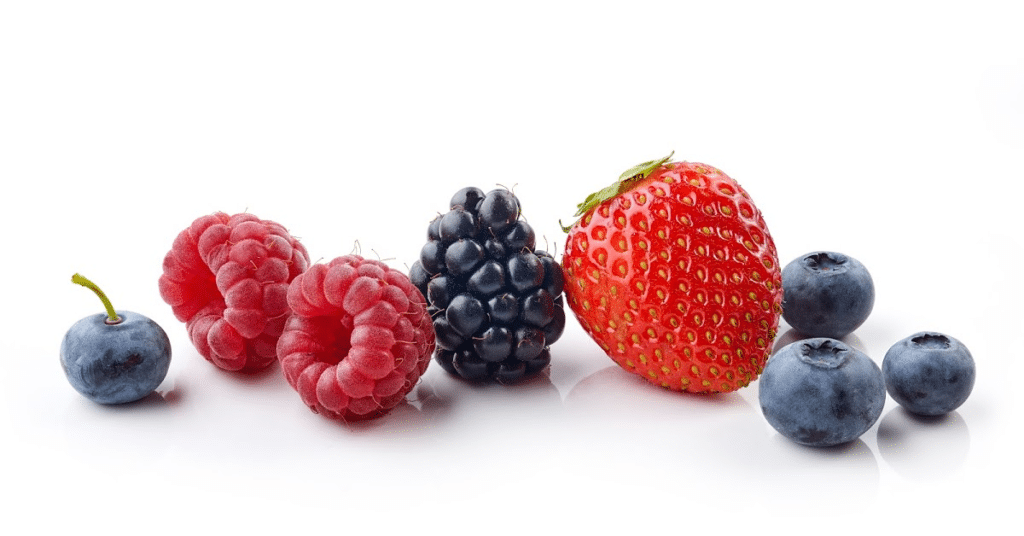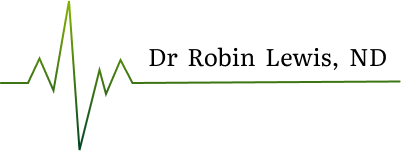
What is an antioxidant?
Antioxidants are compounds found in plants (or made in our own bodies) that help combat oxidation. Oxidation is a process that results in reactive oxygen species (ROS) and if these ROS’ build-up they can cause a lot of damage. Because ROS’ can react with everything around it, these nasty compounds will damage things such as our DNA, cells, and the lining of our arteries.
Keep in mind, our body will always produce ROS’ because they are by-products of metabolism. However, our naturally produced antioxidants (ie glutathione, uric acid, ubiquinol (Co-Q10) and melatonin) aren’t always enough to protect us from the ROS’. This is due to a multitude of reasons, but most often it’s a combination of nutrient poor diets and increased exposure to things that increase our ROS’, such as:
- Inflammation (inflammatory diseases &/or general inflammation)
- UV rays
- Pollution
- Refined/processed foods
- Additives and food dyes
- Pesticides
- Heavy metals
- Cigarette smoke
- Industrial solvents
- Excessive exercise
- Trans fat
- Chemotherapy and radiation
As you can see, we are constantly bombarded by things that create ROS, and our body can have a hard time keeping up. Furthermore, this constant damage to our cells and DNA will lead to some of the most dangerous diseases around, ie cancer and heart disease.
Naturally, one would assume this means ingesting extra antioxidants should help prevent these diseases. This blog will be diving into whether or not ingesting antioxidants can prevent heart disease and improve our overall cardiovascular health.
What are the different types of antioxidants?
- Vitamin C (ascorbic acid)
- Vitamin E (tocopherols and tocotrienols)
- Vitamin A (retinol, retinyl esters)
- Allium sulphur compounds
- Astaxanthin
- Beta-carotene
- Glutathione
- Melatonin
- Catechins
- Selenium
- Flavonoids
- Phenols
- More…
Are antioxidants good for cardiovascular disease (ie heart attack, stroke & atherosclerosis)?
This can be answered in two parts. First off, deficiencies in certain antioxidants have been clearly shown to increase your risk of heart disease and atherosclerosis. For example, vitamin c and selenium deficiencies have been shown to result in very serious cardiac conditions/events. So, if we are looking at things from a deficiency point-of-view, yes antioxidants are incredibly important. This then begs the question, do they have added benefit, even if you aren’t technically deficient?
In general, there isn’t strong enough evidence to suggest that antioxidant supplements, as a whole, lower rates of heart attack, stroke and cardiovascular-related deaths. That being said, they play a very important role in certain aspects of cardiovascular health.
Vitamin C, for example, has also been shown to decrease CRP, one of the biggest markers of inflammation and a known risk factor for cardiovascular disease7. These findings however, were found in smokers, a population that has high amounts of ROS’ and would consequentially need more antioxidants.
This brings me to another important point, are we studying antioxidant therapy in the right populations?
Studying antioxidant therapy in people who aren’t low on antioxidants, may lead us to believe that these supplements provide no benefit to your cardiovascular system. Just like anything else, if we don’t need antioxidants then we probably won’t notice a massive difference while taking them. If we look at people who are at a higher risk, due to their low intake of nutrient dense foods, smoking, inflammation, ect. their benefits may become more obvious.
Research has shown, because activities like smoking decrease your antioxidant levels, it cause a build-up of oxidized LDL (the precursor to plaque formation in your arteries)6 and damages the small blood vessels of the heart8. They have also shown that supplementing the Vitamin C can restore some of that damage our blood vessels endure from smoking8. Therefore, populations like these may be better suited for antioxidant therapy.
This being said, not all antioxidants may be appropriate. If we look at the different types of antioxidants, there are notable differences between the different types.
Breakdown of specific anti-oxidants and their cardiovascular benefits:
- Vitamin E1,3: No significant effect on cardiovascular outcomes (heart attack, stroke and cardiovascular related death). However, specific types of vitamin e, notably the tocotrienol forms, have been shown to improve the health of your blood vessels.
- Vitamin C2,8: Yes, supplementing with vitamin C has been shown to decrease risk of cardiovascular disease, although the evidence is mixed. Regardless, there is strong evidence to show that vitamin c protects your blood vessels from the damaging effects of ROS’.
- Beta-carotene3: No notable cardiovascular benefits and some studies suggest it may increase risk of lung cancer.
- Glutathione4: Has been shown to slow the progression of atherosclerosis.
- Astaxanthin5: Has been shown to decrease damage to the heart muscles and can improve its function. Otherwise, it hasn’t been shown to prevent heart attack and stroke.
- Selenium: Deficiencies in selenium can lead to really serious heart conditions, such as Keshan Disease. They have also found that selenium levels are inversely related to coronary artery disease (narrowing arteries)7. *Our soils are notoriously deficient in selenium so deficiencies can be common.
- Flavonoids: Higher intake has been shown to result in lower rates of cardiovascular related deaths9.
Disclaimer
Information can be empowering, but we all have unique health profiles and needs. The health-related information contained in this article is intended to be general in nature and should not be used as a substitute for a visit with a licensed naturopathic doctor. The advice in this article is not intended to provide medical advice, diagnosis or treatment.
If you would like to learn more about what you can do to lower your risk of cardiovascular disease, please feel free to book your 15 minute ‘Meet and Greet’ today.
References
- Sesso, H. D., Buring, J. E., Christen, W. G., Kurth, T., Belanger, C., MacFadyen, J., … & Gaziano, J. M. (2008). Vitamins E and C in the prevention of cardiovascular disease in men: the Physicians’ Health Study II randomized controlled trial. Jama, 300(18), 2123-2133.
- Ashor, A. W., Lara, J., Mathers, J. C., & Siervo, M. (2014). Effect of vitamin C on endothelial function in health and disease: a systematic review and meta-analysis of randomised controlled trials. Atherosclerosis, 235(1), 9-20.
- Rasool, A. H. G., Rahman, A. R. A., Yuen, K. H., & Wong, A. R. (2008). Arterial compliance and vitamin E blood levels with a self emulsifying preparation of tocotrienol rich vitamin E. Archives of Pharmacal Research, 31(9), 1212.
- Rosenblat, M., Volkova, N., Coleman, R., & Aviram, M. (2007). Anti-oxidant and anti-atherogenic properties of liposomal glutathione: studies in vitro, and in the atherosclerotic apolipoprotein E-deficient mice. Atherosclerosis, 195(2), e61-e68.
- Fassett, R. G., & Coombes, J. S. (2011). Astaxanthin: a potential therapeutic agent in cardiovascular disease. Marine drugs, 9(3), 447-465.
- Bloomer, R. J. (2007). Decreased blood antioxidant capacity and increased lipid peroxidation in young cigarette smokers compared to nonsmokers: impact of dietary intake. Nutrition Journal, 6(1), 39.
- Flores-Mateo, G., Navas-Acien, A., Pastor-Barriuso, R., & Guallar, E. (2006). Selenium and coronary heart disease: a meta-analysis. The American journal of clinical nutrition, 84(4), 762-773.
- Kaufmann, P. A., Gnecchi-Ruscone, T., Di Terlizzi, M., Schäfers, K. P., Lüscher, T. F., & Camici, P. G. (2000). Coronary heart disease in smokers: vitamin C restores coronary microcirculatory function. Circulation, 102(11), 1233-1238.
- McCullough, M. L., Peterson, J. J., Patel, R., Jacques, P. F., Shah, R., & Dwyer, J. T. (2012). Flavonoid intake and cardiovascular disease mortality in a prospective cohort of US adults. The American journal of clinical nutrition, 95(2), 454-464.




